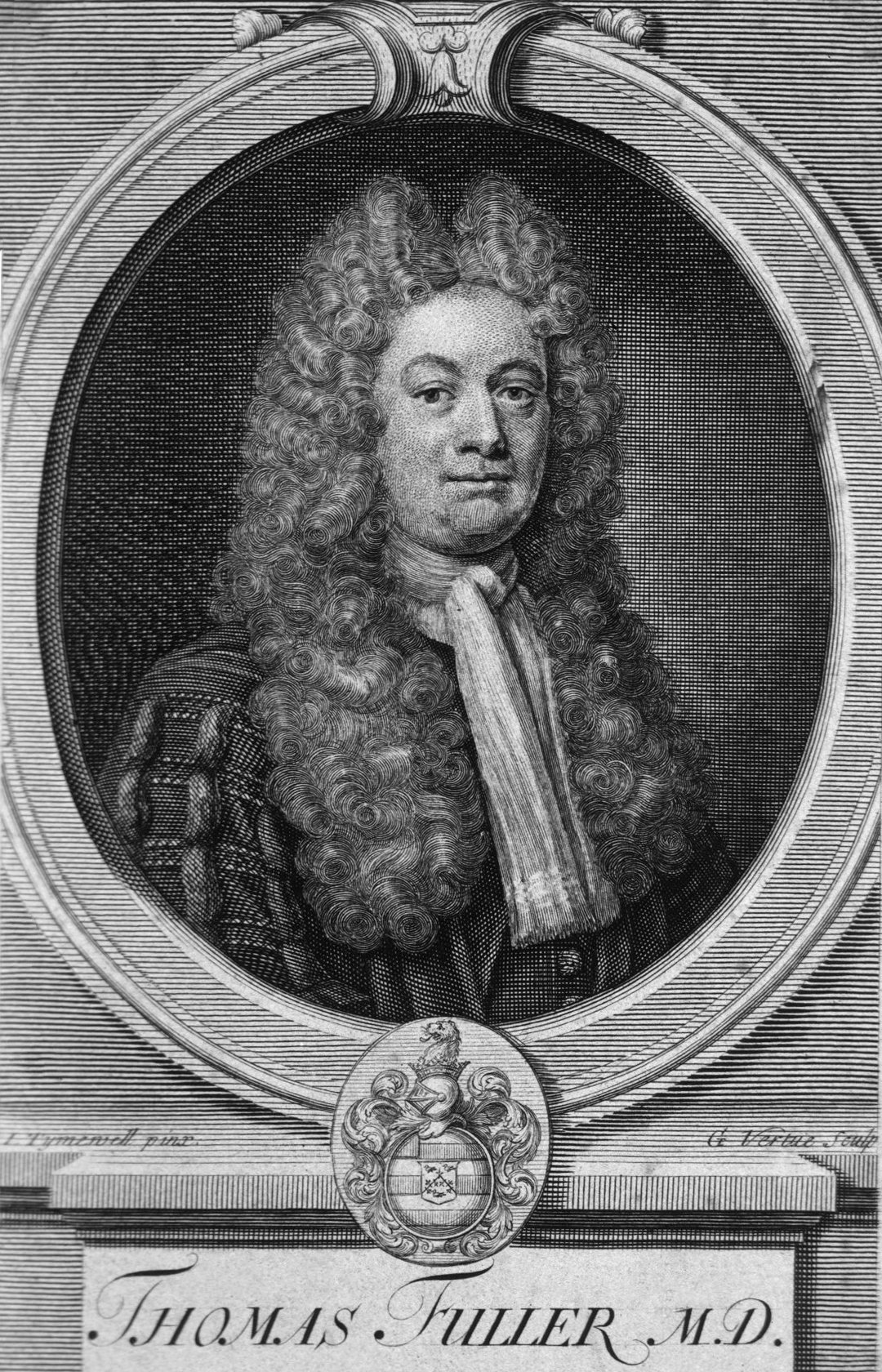“5878. You cannot make Velvet out of a Sow's Ear.”
Introductio ad prudentiam: Part II (1727), Gnomologia (1732)
Thomas Fuller, M.D. was a British physician, preacher and intellectual.
Fuller was born in Rosehill, Sussex, and educated at Queens' College, Cambridge. He practised medicine at Sevenoaks.
In 1723 he published Pharmacopoeia Domestica, and in 1730 Exanthematologia, Or, An Attempt to Give a Rational Account of Eruptive Fevers, Especially of the Measles and Small Pox. In 1732 he published a compilation of proverbs titled Gnomologia: Adagies and Proverbs; wise sentences and witty saying, ancient and modern, foreign and British which includes the words, "Be you never so high, the law is above you".
Wikipedia

“5878. You cannot make Velvet out of a Sow's Ear.”
Introductio ad prudentiam: Part II (1727), Gnomologia (1732)
“1131. Company in Misery makes it light.”
Introductio ad prudentiam: Part II (1727), Gnomologia (1732)
“5003. Tho' all Men were made of one Metal, yet they were not cast all in the same Mould.”
Introductio ad prudentiam: Part II (1727), Gnomologia (1732)
“4522. The Fly, that playeth too long in the Candle, singeth her Wings at last.”
Introductio ad prudentiam: Part II (1727), Gnomologia (1732)
“4797. The Tongue is not Steel, yet it cuts sorely.”
Introductio ad prudentiam: Part II (1727), Gnomologia (1732)
“3908. Poverty is not a Shame; but the being asham'd of it, is.”
Compare Poor Richard's Almanack (1749) : Having been poor is no shame, but being ashamed of it, is.
Introductio ad prudentiam: Part II (1727), Gnomologia (1732)
“3968. Proud Men can't bear with Pride in others.”
Introductio ad prudentiam: Part II (1727), Gnomologia (1732)
Introductio ad prudentiam: Part II (1727)
“6103. A Friend in Need
Is a Friend in Deed.”
Introductio ad prudentiam: Part II (1727), Gnomologia (1732)
“2982. It is my own Fault, if I am deceived by the same Man twice.”
Introductio ad prudentiam: Part II (1727), Gnomologia (1732)
“5204. To make a Mountain of a Mole-hill.”
Introductio ad prudentiam: Part II (1727), Gnomologia (1732)
“547. All Temptations are founded either in Hope or Fear.”
Introductio ad prudentiam: Part II (1727), Gnomologia (1732)
“5519. What the Eye sees not, the Heart rues not.”
Introductio ad prudentiam: Part II (1727), Gnomologia (1732)
“504. All between the Cradle and the Coffin is uncertain.”
Introductio ad prudentiam: Part II (1727), Gnomologia (1732)
“4495. The Ebb will fetch off, what the Tide brings in.”
Introductio ad prudentiam: Part II (1727), Gnomologia (1732)
“4718. The present Fashion is always handsome.”
Introductio ad prudentiam: Part II (1727), Gnomologia (1732)
Introductio ad prudentiam: Part II (1727)
“6067. Zeal is by no Means the same with Fury and Rage.”
Introductio ad prudentiam: Part II (1727), Gnomologia (1732)
“5014. Tho' the Sun shines, take your Cloak.”
Introductio ad prudentiam: Part II (1727), Gnomologia (1732)
“4908. There is no disputing of Tastes, Appetites and Fancies.”
Introductio ad prudentiam: Part II (1727), Gnomologia (1732)
“6372. All Work, and no Play,
Makes Jack a dull boy.”
Introductio ad prudentiam: Part II (1727), Gnomologia (1732)
“6089. To borrow upon Usury, bringeth on Beggary.”
Introductio ad prudentiam: Part II (1727), Gnomologia (1732)
“3668. Nothing is ill, that ends well.”
Introductio ad prudentiam: Part II (1727), Gnomologia (1732)
“3031. It is Wit to pick a Lock, and steal a Horse; but it is Wisdom to let it alone.”
Compare Poor Richard's Almanack (1735) : The cunning man steals a horse, the wise man lets him alone.
Introductio ad prudentiam: Part II (1727), Gnomologia (1732)